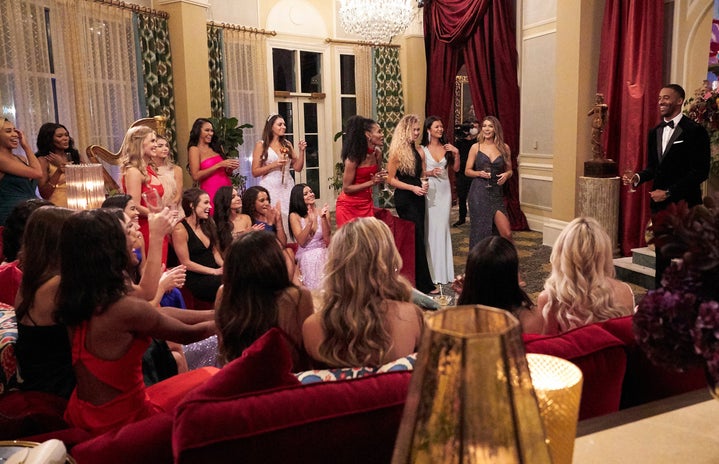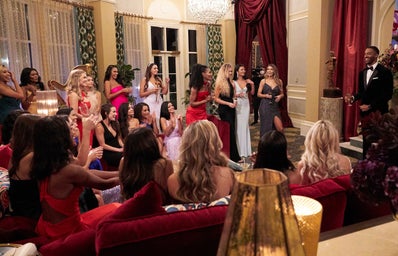For years, one of my personal favorite activities has been marathoning The Bachelor franchise. My mom and I have watched almost every season together because we find the romance (and the drama) quite entertaining, but though these shows keep me hooked from beginning to end, I can’t help but notice the lack of The Bachelor’s body diversity – something the show has yet to improve, even after all these years.
While the most recent seasons of The Bachelor and The Bachelorette feature more contestants of color in comparison to some of the earlier seasons, and the casting of the first ever openly bisexual bachelorette is a step in the right direction, the lack of body diversity remains appalling.
Any season from The Bachelor franchise will show off an abundance of fit, muscular men, while the women are all extremely lean and toned. Although there’s nothing wrong with representing these body types on their own, it’s unfair to only showcase one standard when there are a plethora of others. This narrow representation can easily destroy self-esteem. According to a survey conducted by the UK’s Mental Health Foundation to coincide with the release of Love Island – another dating show severely lacking in body diversity – in 2019, around 25% of people aged 18-24 say that consuming reality TV makes them worry about their body image, and causes insecurity. This connection between television and insecurity reminds me of the cultivation theory, something I learned in one of my college courses. The cultivation theory suggests that people may believe reality to be different than what actually exists, based on the media they consume. Although the theory hasn’t been proven to be true, it’s certainly reflected in the link between reality television and deteriorating self-image. When we’re constantly watching a group of skinny women being showcased as the ideal, how can those who don’t fit that bill not feel insecure about their own bodies? Why doesn’t The Bachelor, or series like it, seem to care to showcase contestants that are representative of the world they live in?
Back in 2014, former Bachelor host Chris Harrison gave a rather disgusting response. In short, Harrison said that a plus-sized body type is “not attractive” for television. I’d like for him to elaborate, and tell me in what way, exactly, is having a different body type unappealing? Isn’t the point of this show for two people to hopefully fall in love? Why are we focusing on what those two people look like? It’s horrifying to see that as a society, our standard of beauty has narrowed so significantly. It was almost 10 years ago when Harrison made that statement – around nine years into the show – and to this day, the franchise still hasn’t made any improvement in that regard.
Earlier this year, on Matt James’s season of The Bachelor, one of his friends was caught on camera body-shaming contestant Victoria Larson – yes, that’s right: This. Year. Although James addressed the situation, apologizing on behalf of his friend, I can’t help but wonder why we aren’t holding his friend accountable for his own actions? Picking on women’s bodies for not being a very specific way is not what we’re doing in 2021.
One Twitter user also noted that the show has all of the women picking dresses from the same rack, suggesting that everyone is pretty much the exact same size, so out of curiosity I checked out the casting application for the show. After listing your name, date of birth and gender, the very first requirement is to state your height and weight. This is listed before stating your occupation. There’s no reason to even ask for height and weight, let alone having it listed before your own career. Having an application formatted that way shows that the industry cares a lot more about physical appearance than any other aspect. If they thought they could get away with it, I bet that requirement would have come before the applicant’s name! I suppose it’s one thing for a long-standing show to be slow catching up with the times, but to be actively working against a diverse range of contestants? It’s hard enough for me to grasp that there’s such a preference for certain sizes and looks on the show alone, let alone society in general.
In that same 2014 interview, Harrison also pointed out that The Bachelor franchise is a business, explaining that it needs to be televised in a way that will help them profit. Why does leaving generations and generations of insecurity not matter as much as making profit does? Why are businesses even saying that plus-sized contestants aren’t profitable – and what does it say about those who think that only skinny pays? Target is also a business, but it still strives to showcase diversity. Aerie has seen exponential growth in its market since it began promoting models of all different shapes and sizes. Skinny, specifically, is not what sells. Reality sells, and the reality is that there’s an infinite array of women’s – and men’s – bodies out there.
If producers genuinely think the weight of the contestants is more important than the show’s original premise, then their priorities are not in order. I know the point of The Bachelor isn’t to encourage viewers to embrace their own individual beauty, but there’s no reason that that can’t be a side effect, so to speak, of the show. Media has all the power to showcase people of different sizes, sexualities, races and disabilities, but if shows like The Bachelor fail to promote body diversity due to their own stilted ideas of attractiveness, then maybe it’s time for shows like The Bachelor to rebrand themselves.
Studies Referenced:
Mental Health Foundation (2019) Body image: How we think and feel about our bodies.


